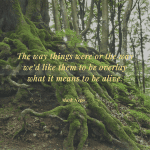This is a response to Jenkins comment on my “Peer Review” (which can be found in the comments here)
I note again the Prof. Jenkins is not in a position to declare that “no scholars outside that area (eg Mesoamericanists) need to know anything about [ABMS], because it is not a genuine discipline.” I find this wildly puzzling. He knows he doesn’t have to take ABMS seriously because other people, who know essentially nothing about the Book of Mormon don’t take it seriously. This is a fairly blatant case of scholarship by assertion and the fallacy of argument from authority. It is also a case of poisoning the well of discourse. I simply can’t take this type of assertion seriously. Study the Book of Mormon and ABMS scholarship seriously, or don’t talk about the question of Book of Mormon historicity at all. Those are the only two legitimate scholarly options. There is a substantive difference between an opinion and an informed opinion.
Jenkins asks: “In other words, if I am right, even BYU does not seem to give great weight to ABMS. Do they not take the subject seriously? And if they don’t, why should anyone else?”
I’m sure there are never turf wars, nest-feathering, or political power struggles at Baylor, so you probably don’t know what I’m talking about, but BYU curriculum organization and departmental politics has nothing to do with the existence or non-existence of ABMS.
1- BYU history department teaches no classes on Precolumbian America. Only Anthropology/Archaeology does.
2- When I teach world history classes at BYU, I always talk about the Book of Mormon and Precolumbian America in the week I spend on Precolumbia.
3- The anthropology department teaches many classes on Precolumbian Mesoamerican studies. These classes generally integrate BOM issues with mainstream ideas.
4- There is no class on BOM archaeology per se because archaeology is organized by region, period and culture, not by books. Most universities don’t teach classes on biblical archaeology any more for this reason, they teach something like Palestinian/Canaanite/Israelite Iron Age archaeology instead. At BYU ABMS is integrated into Mesoamerican archaeology classes.
5- Most of the teaching of the Book of Mormon is done in Religious Education–and they definitely defend their turf. (I have never taught a course on the BOM at BYU, even though I’ve offered to do so to the administrators at Religious Education.) All BYU students are required to take BOM classes. I don’t know for certain, but I am quite confident that all of these courses present the BOM as authentic history. So, in fact, there is a BOM studies program at BYU, and every student is required to participate in it.
6- One cannot major in Book of Mormon studies because it is not a viable career path for students. One can major in Ancient Near East Studies or Archaeology at BYU, where the BOM is integrated into the curriculum.
7- The Maxwell Institute is a research not a teaching institute. It recently abandoned support for the historicity of the Book of Mormon for personal, political and power reasons. It was a coup. Those things happen in academia—but I’m sure not a Baylor! 🙂
Finally, let me note the following:
1- There are dozens, if not several hundred of qualified scholars publishing on ABMS.
2- The bibliography in the field amounts to hundreds, and perhaps several thousand items.
3- Several professional journals are dedicated to ABMS.
4- Several conferences are held each each year on ABMS.
5- Numerous books on the topic are published each year.
6- BYU supports the Maxwell Institute, which until three years ago was dedicated primarily to ABMS. (How and why that changed is controversial: some claim it represents an ideological shift in BYU and the Church, but I’m confidant it was all about money, research positions, power, glory, PR, land, diverting donations to pet projects, etc.)
Certainly more professional academic research work is done each year on the Book of Mormon, than, say, Old Persian studies. By any objective standard, this is a thriving and independent academic discipline. It is certainly controversial and idiosyncratic, and out of the mainstream. But to claim that there is no AMBS discipline at all because Jenkins doesn’t believe in the historicity of the BOM is preposterous.











